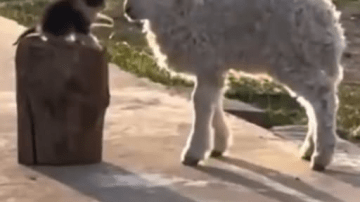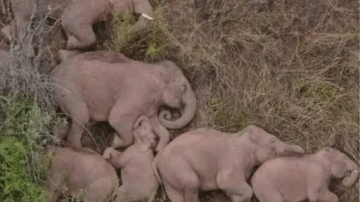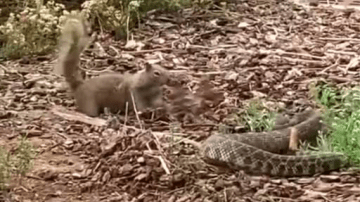It was a quiet Sunday afternoon on 38th Street and Whipple Avenue — the kind of afternoon where the world seems to pause. The hum of traffic was faint, the wind was soft, and the streets were nearly empty. That’s when a patrol car slowed at the corner. Inside were two deputies on shift, scanning the quiet neighborhood for anything out of place.

Something caught their eye.
By the curb, a young man was kneeling beside an old, rusted bicycle. The frame was chipped, its paint long faded. The tires sagged, deflated and smooth from years of wear. The chain hung loose, tangled, and slick with grease. Yet the man worked patiently, his hands steady, his focus unwavering — as if this broken thing still held hope.
His name was Shavon Newman.
When the deputies stepped out and asked if he needed help, Shavon looked up. His hands were blackened with oil, but his smile was gentle — the quiet, self-reliant kind that says I’ll manage.
“I’m good,” he said softly. “Just trying to get her running again.”
The “her” he spoke of was the bicycle — his only way to get to work.
He explained that he lived on Fawcett Avenue and worked at a restaurant miles away in Jackson Township. Every morning before sunrise, he’d ride that same bike down back roads, rain or shine, dark or light. It wasn’t luxury — but it was freedom. His freedom.
The Ride That Couldn’t Go On
The deputies listened, nodding, impressed by his determination. But when they looked closer, they saw the truth — there was nothing left to fix. The metal was eaten through by rust. The gears no longer turned. The tire was so flat it looked like it had forgotten what air felt like.
“Buddy,” one of the deputies said kindly, “I think this one’s done.”
Shavon wiped his hands on his jeans and looked down at the bike. “She’s been with me a long time,” he said quietly. “Guess I’ll just walk for now.”
The deputies exchanged a look — one of those silent exchanges that doesn’t need words. Then, without hesitation, they offered him a ride home.

A Conversation That Changed Everything
As the patrol car rolled through the quiet streets, the conversation turned easy. Shavon spoke about his job — how he loved being part of a team, how proud he was to earn his own way. He didn’t complain. He didn’t talk about hardship. He just spoke with gratitude — for work, for purpose, for the chance to build something better.
The deputies were moved by how humble he was. Here was a young man who had every reason to be bitter, yet chose gratitude instead.
When they dropped him off, Shavon thanked them again, waved, and disappeared inside his small home. But his story didn’t disappear with him.
That night, back at the station, one deputy couldn’t stop thinking about him — the worn-out bike, the long miles, the unwavering spirit. He told the others. Then another added, “We should do something.”
By morning, the idea had become a plan.
The Decision to Give Back
Deputies White and Miller, along with Sergeant Cook, pooled together funds. It wasn’t an order, wasn’t in their job description, and certainly not part of any official duty. It was just the right thing to do.
A few calls later, a brand-new bicycle stood gleaming in the station — strong, sleek, and ready to hit the road. It was more than metal and rubber; it was a symbol of a community that still cared.
They loaded it into the back of the patrol car and headed toward Fawcett Avenue.
The Gift That Spoke Louder Than Words
When the car pulled up, Shavon stepped outside, puzzled to see the same deputies again. “Everything okay?” he asked, wiping his hands on his shirt.
“Everything’s great,” Deputy Miller said with a grin. “We just wanted to drop something off.”
When they rolled the new bicycle out of the trunk, Shavon froze. His mouth opened slightly. His eyes widened, disbelief giving way to astonishment.
“This… is for me?” he whispered.
“It sure is,” said Sergeant Cook, handing him the handlebars. “You’ve earned it.”
For a moment, he didn’t move. Then, slowly, his expression shifted. The shock melted into pure, unfiltered joy. He ran his hands along the cool metal frame, feeling the smoothness of something brand new — something that was his.
He swung a leg over the seat, tested the pedals, and began to ride in small circles around the deputies. His laughter filled the air — free, loud, and light.
And for the first time in a long while, he wasn’t just riding to work. He was riding with hope.
A Moment That Meant Everything
The deputies stood there, watching with quiet smiles. To them, it was a small gesture — a few dollars, a simple act. But to Shavon, it was a lifeline. It wasn’t just a bicycle; it was dignity restored, faith renewed, a reminder that good still existed in the world.
Before they left, Sergeant Cook placed a hand on his shoulder. “Keep at it,” he said. “You’ve got a good head on your shoulders. We’re proud of you.”
Shavon nodded, still beaming. “Thank you,” he said softly. “You don’t know what this means to me.”
As they drove away, they watched him shrink in the rearview mirror — a small figure pedaling strong, his back straight, his future bright.
Later that night, one of the deputies posted a message on social media:
“Seeing the excitement in Shavon’s face as he tried out his new bike proved to us all that if anyone deserved this small act of kindness, it was him. Keep up the good work, Shavon — your brothers and sisters at the Sheriff’s Office have your back.”
The Ripple Effect of Kindness
The story spread quickly. Locals shared it online, touched by the simplicity of the act. Messages poured in from people who said they’d lost faith in humanity — until they read about Shavon.
Neighbors stopped by his restaurant to leave small tips or just to say hello. Others donated bike accessories — a helmet, a light, a lock. Each gesture was a reminder that kindness, like a spark, can catch fire and travel farther than anyone expects.
But Shavon never sought attention. He kept showing up for work, still humble, still grateful. When asked about the deputies, he simply said, “They didn’t have to do that. They just cared. That’s something you don’t forget.”

More Than a Bicycle
Weeks later, the deputies passed through Fawcett Avenue again and saw Shavon riding down the road — the new bike shining under the afternoon sun. He waved when he saw them, his smile the same as before, but his spirit somehow lighter.
It reminded them why they joined the force — not just to enforce the law, but to serve, to protect, to uplift.
Because sometimes, the smallest acts of goodness are the ones that stay with you forever.
The Lesson on Two Wheels
In a world often hardened by indifference, this moment — a young man, a broken bicycle, and a few deputies who decided to care — was proof that compassion still exists in the quiet corners of ordinary life.
Kindness doesn’t always roar. Sometimes, it whispers through actions. Sometimes, it rolls down an empty street, carried by the laughter of someone who refuses to give up.
And sometimes, it rides quietly on two new wheels — under the sunshine, in the steady rhythm of hope, reminding us all that a little compassion can change everything.
Because true kindness isn’t about grand gestures — it’s about seeing someone struggle, and choosing to stop.





